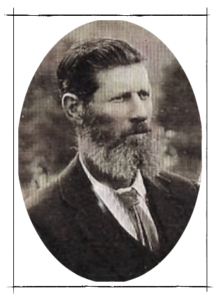Rosewood History

William Pitt Vance (1868-1924) came to Rosewood Gate as an infant with his parents John and Olivia Vance. In 1923 he was living at Kulara, via Cairns, when wrote to the “Daily Mail” about his boyhood memories of his home town. His words give us a small glimpse into the lives of our pioneers.
A friend in the south sent me a copy of your issue of May 5, containing an account of the progress of Rosewood district, and it has awakened old memories of boyhood day when it was only “Rosewood Gate”. My dearest memories are of two small clearings where the town now stands, and a strip of scrub with a track cut in it (now the main street), and the old home, slabs and shingle roof, and over across the forest, the main road to Toowoomba, a large two two-storied hotel, where the coaches used to stop prior to the railway coming. And what a task it was for the selectors in those days, most of them “new chums” fresh from the old land, and 90 per cent without capitol yet with splendid courage, they took up those selections, and with indomitable pluck held on, financed by business firms, notably Messrs. Cribb and Foote of Ipswich. Living was hard, hours of labour all the daylight possible, recreation nil, but victory came, and the record published is a tribute to our pioneers.
Most of the farms in proximity to Rosewood were held by Britishers, the exception being Pedrazinni, an Italian. For the first five miles or so it was British; then in the Marburg and Minden districts fully 80 per cent were Germans, and let it be said, they were splendid settlers; equal in all respects to the best of our own people, and yet, someone has been responsible for turning Minden into Frenchton. There never were any French settlers in the Rosewood district, the only French person the writer remembers being M. Desbois, the first schoolmaster of the local school. The writer started his education on the first day the school was opened, and memory, harking back recalls the school-master, a portly gentleman, a great believer in discipline, as he, with cane tucked under his, arm, clay pipe in his mouth, used to march up and down before the desks; and woe betide the culprit who gave offence And yet, withal, discipline was needed, for some of the “boys” were already guilty of downy growth about their cheeks and little understood or cared for the necessity of learning the three R’s.
J. W. Vance opened the first business in Rosewood, and J. L. Frederick in Marburg and Minden, and after the writers school days were over, he used to run a mail from Rosewood to Marburg, and from Rosewood to Watson’s place at Tarampa, passing through a closely settled district. He saw the scrub disappear and cultivation take its place.
In those days the womenfolk had a rough time and no pen can do justice to their splendid qualities, nor can distinction be made between the various nationals. Trials came to them all, the worst perhaps being the drought of 1884 when great numbers of cattle perished and the settlers in the scrub were hard pushed for water for drinking purposes. The Government used to send train-loads of water and German waggons, carts, drays, and all kinds of vehicles would rattle over the rough roads to secure a portion of the precious liquid, and it was hard luck sometimes for a settler to come in some seven or eight miles only to find the tanks empty. And then, when the good seasons came, the price of corn used to drop as low as 9d per bushel; but every farmer used to make some butter, and sell eggs and poultry, and so eked out a living. Then came a brighter day, and the travelling dairy came along to show the farmers the way to separate and make butter, and dairying took firm hold, and lifted the district to a high place.
The writer remembers the first show of the “Farmers’ Club,” when the school house was utilised for the purpose, and cabbages, etc., replaced the slates on the desks for the time being. Now that the mineral wealth underground is being added to the wealth produced on the surface, the future should be bright for those whose interests lie there.
The writer of there lines wandered far from land interests for many years, but 15 years since took up a selection on the Atherton Tableland, and tackled the tropical jungles as his forbears had the Rosewood scrubs, and has seen a wonderful transformation in that time.The jungle is going fast, and now the fairest province of the State is producing great wealth. This year’s corn crop will probably be 25,003 tons. The three butter factories are in full swing, and a bacon factory is in course of erection. All mean increased production, for here the settler has never known what it is to suffer from lack of water. During the drought of 1915 the hundreds of springs and water courses that cover this tableland, never failed. This year, whilst many parts of the State are drought stricken, the tableland has had some 40 inches of rain so far, and some four inches have fallen in the last 24 hours.
I started to write of Rosewood of the old days, but my pen has been run to tell somewhat of this glorious inheritance of the white races, a tropical country with a semi-tropical climate and a splendid rainfall, with volcanic soils unsurpassed in the State and abundant water for all purposes. In the old homestead of the Vance family at Rosewood, there were four boys and four girls, all as yet happily living and on the tableland there are nigh a dozen of the third generation fulfilling their destiny in winning wealth from mother nature. I send best wishes for the old home town.
